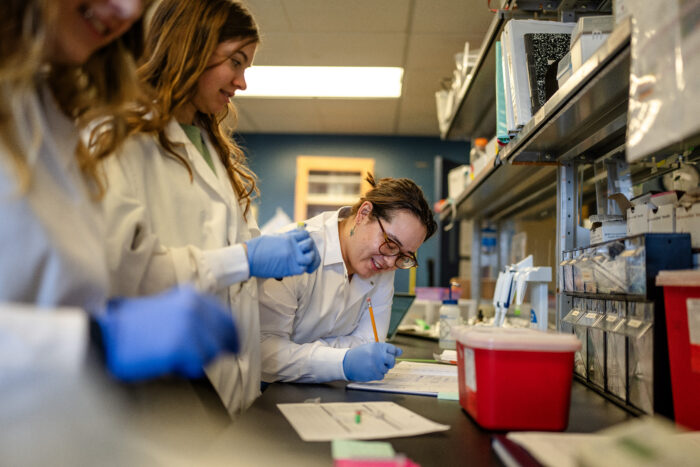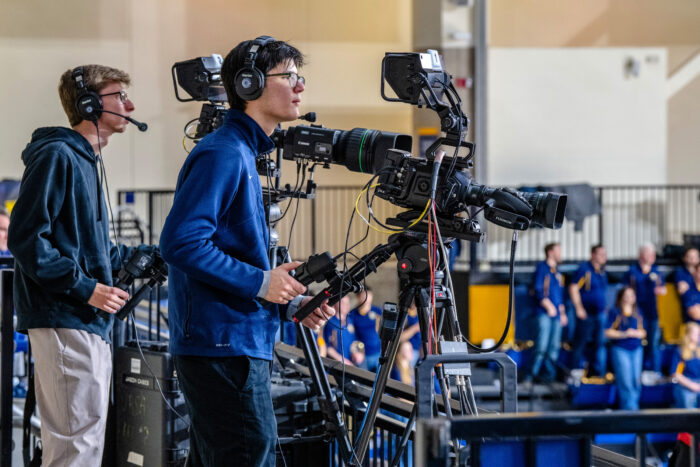Marquette University’s Office of Disability Services is dedicated to providing equal access within the classroom setting, through the determination of appropriate accommodations, for students with documented disabilities. ODS promotes accessibility awareness through collaboration with campus partners, the development of student self-advocacy and consultation with the broader community.
In line with the ODS Mission, the Office of Disability Services aims to engage with campus and broader community partners to raise disability awareness, creating a welcoming and inclusive campus environment.

Jack Bartelt, director of the Office of Disability Services, is there to ensure that ODS has the resources and support they need to provide extremely high-quality service, as well as making sure that what they do is both clear and consistent.
It is Bartelt’s responsibility to make sure ODS is aware of evolving best practice, emerging legal guidance, and are leaders in their field. He represents not only the ODS office, but the students and guests who interact with the office to the greater campus community.
Here in a Q&A, he discusses his role at Marquette making sure every student feels welcome and included on campus.
What is the role of the Office of Disability Services on campus?
Marquette’s Office of Disability Services acts as a landing spot and a primary resource for students who are seeking accommodations related to a medical or mental health condition that is affecting the accessibility of our programs (educational, campus life, extracurricular, and more). ODS is also a resource to our entire campus community, helping Marquette to understand how it can both meet the needs of individuals with disabilities, but also go beyond that to create a more inclusive environment that embraces ability diversity.
In your role, how do you maintain Marquette’s mission to create a diverse and inclusive environment for the students?
I am lucky to lead a unit of passionate and engaged staff who all work together to listen to and understand the needs of people seeking accommodations. We also work with partners across campus to help them understand the policy or procedural adjustments they can make to increase access, as well as educating our campus on best practices for accessible design on the front-end. When we address barriers to access (whether they are physical, informational, procedural or sensory), we can automatically and immediately welcome a more diverse group to share in what Marquette has to offer.
How does ODS balance offering help and guidance to the students while allowing them to pursue self-advocacy, independence, and academic success?
Fostering agency is one of main goals in the relationship we build with students, but the practical experience can be more complicated. Students arrive at Marquette in a state of emerging adulthood, and some may be relatively new to self-advocacy. We never want the encouragement of agency to feel like a lack of support. We also know that there are times when a student should not be expected to handle a question or concern all on their own; as the administrators in this process we are supposed to let them know when it’s ok to tap-out. We put a lot of effort into rapport building, and hope that the relationships we build with students communicate not only the trust we have in them, but the support that is here waiting in the wings whenever they need or want it.
Are there any challenges that come up while working with such a diverse group of individuals on Marquette’s campus?
Certainly, but the challenges are actually what makes the job as enjoyable as it is. I’ve been doing this type of work for more than 10 years at Marquette and there isn’t a year that goes by where we don’t see a new need, or explore a new type of accommodation that we’ve never come across before. It is an opportunity to learn, to creatively problem solve, and to collaborate with new partners on and off campus as we figure out what we can do for the student. Working with such a heterogeneous group also challenges us to approach our work with humility. Assuming things causes more headaches than it helps; we challenge ourselves to remain open to listening, learning and treating students and their needs individually.
In your opinion, how important do you view your role in promoting a diverse and inclusive environment on Marquette’s campus?
I believe it’s fair to say that promoting a diverse and inclusive environment is everyone’s role here on campus. I can’t think of a job that can’t move the needle on inclusivity in some way. Is my role in that important? Absolutely. I am lucky to be positioned in a way to affect change across the institution, and I am even luckier to work with peers and university administrators who all see the importance of this work as well, acting as allies as we create a more accessible and diverse Marquette.


